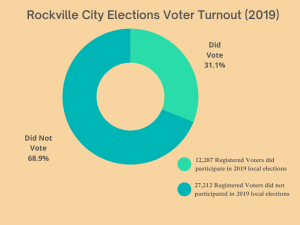
August was a challenging month for emotional well-being in the U.S. A month-over-month reading of the CivicScience Well-Being Index, which tracks the collective emotional well-being of U.S. adults on a daily basis, shows that well-being slid 0.3 percentage points from its July total to 58%.
Even so, well-being this month still rests far above 2022 averages. But the recent downward trend is the inverse of last year’s outlook, when well-being jumped significantly from July to September. That’s important because changes to well-being are indicative of changes to consumer behavior. CivicScience data has shown that well-being correlates with spending patterns, where increases in well-being track alongside increases in U.S. consumer spending and vice versa. Spending in certain consumer categories – such as hotels, apparel, healthcare, dining out, and alcohol – correlate more significantly than others with changes in well-being.
What could account for the drop in good feelings this summer? Major national and global events, such as mass shootings, political instability, and banking/financial sector instability, frequently align with dips in well-being. The rash of extreme weather events in past months could also play a role in elevating anxiety levels.
To gain a fuller picture, it’s important for brands to understand how well-being varies across the U.S. population. Monitoring the index among different demographics of consumers shows that declining well-being for the month of August is most notable among:
- Black Americans, falling 1.2 points to 55.9%. Overall well-being improved month-to-month for White and Hispanic Americans.
- Independent voters, falling 0.8 points to 57.6%. Those who identify politically as Independent declined significantly, whereas well-being rose among Republicans and Democrats (to 60.1% and 56.5%, respectively).
- Americans aged 18-24, falling 0.7 points to 52%. Gen Z has historically reported worse well-being readings than older adults.
- U.S. women, falling 0.6 points to 55.3%. Well-being of women typically rests below that of U.S. men, whose well-being has remained steady from July to August at 61%.
- Middle- and lower-income earners. Americans earning $50-$100K annually dropped 0.5 points to 58.5%, while those earning $50K or less fell 0.7 points to 52.4%.
- Americans in the U.S. West, falling 0.5 points to 58.9%.
- Americans aged 55 and older, falling 0.2 points to 63.1% – the first monthly decline for this age group seen in 2023.
Declining well-being also coincides with declining economic sentiment, which reached the lowest point of 2023 in the latest biweekly Penta-CivicScience ESI report, led by weakening confidence in the U.S. economy and home buying.
Although well-being doesn’t always track in tandem with changes to economic outlook, a downward turn to both indexes worth noting. Ahead of the holiday season and after a travel-heavy summer, consumers are hunting for deals and anticipating cutting spending across several categories. Ongoing tracking finds that 40%-51% of U.S. adults have already cut back or plan to cut back on dining out, clothing, toys/hobbies/gifts, entertainment, and travel expenses. However, monthly averages for all categories except for household items and food delivery reached their highest points of 2023 in August.
Stay tuned for continued updates on well-being, economic sentiment, and anticipated spending patterns from the CivicScience InsightStore. To learn what changes in well-being mean for your brand’s consumers, get in touch.
What is the CivicScience Well-Being Index?
Everything affects everything – that includes how a person feels at any given moment in time. The CivicScience Well-Being Index rapidly captures the collective emotional well-being of the population on a daily basis by asking thousands of survey respondents to report on how strongly they feel different emotions. Through living indexes like the Well-Being Index, CivicScience helps businesses and organizations better understand what’s driving consumer choices, empowering them with the data-driven insight needed to navigate our rapidly changing times.





